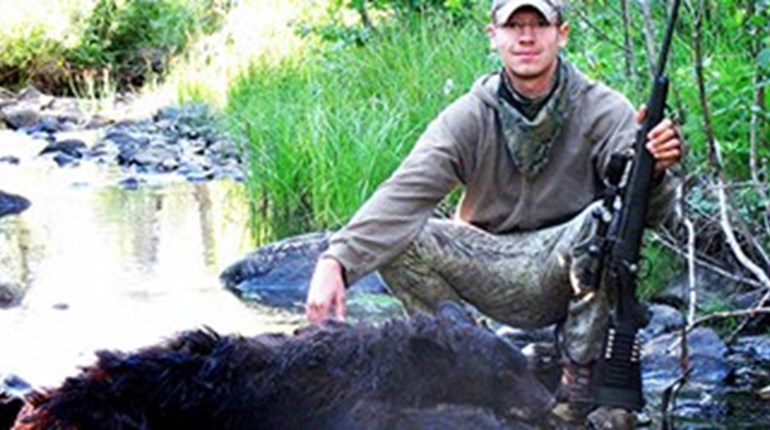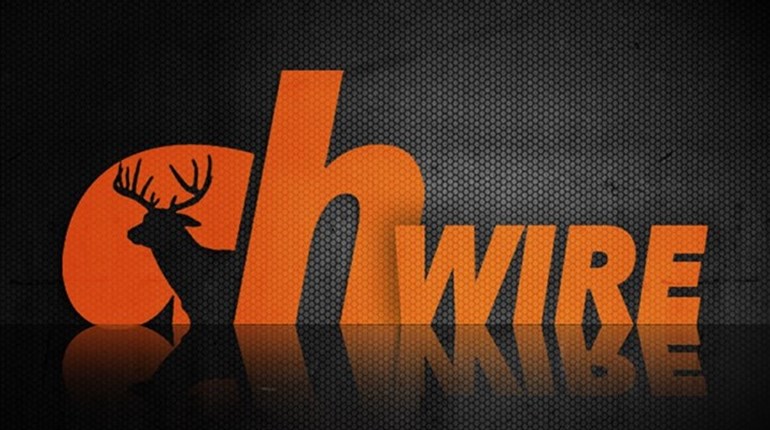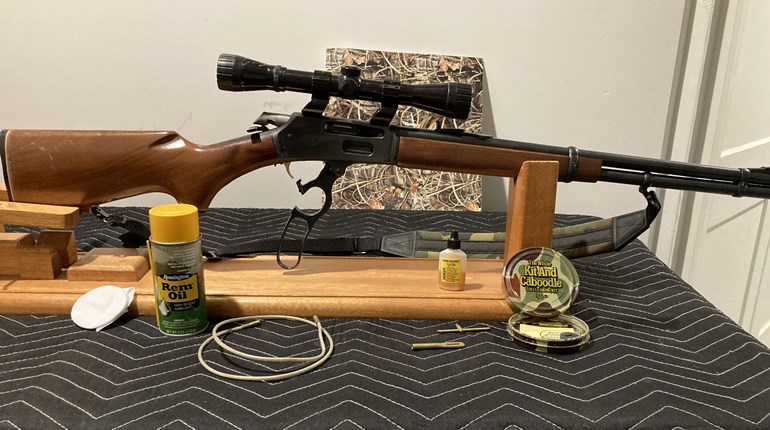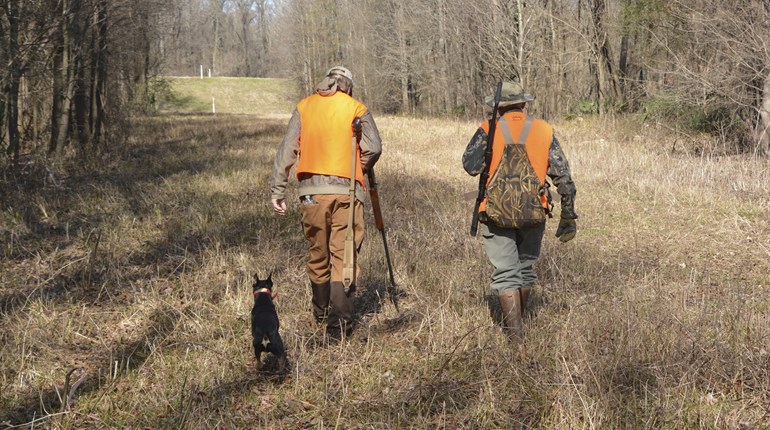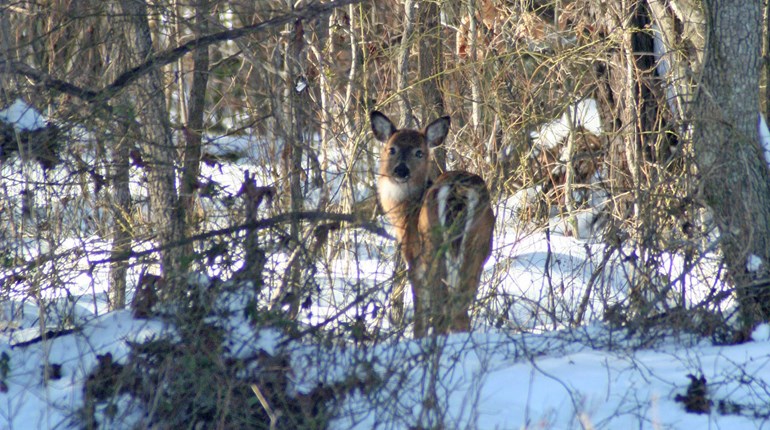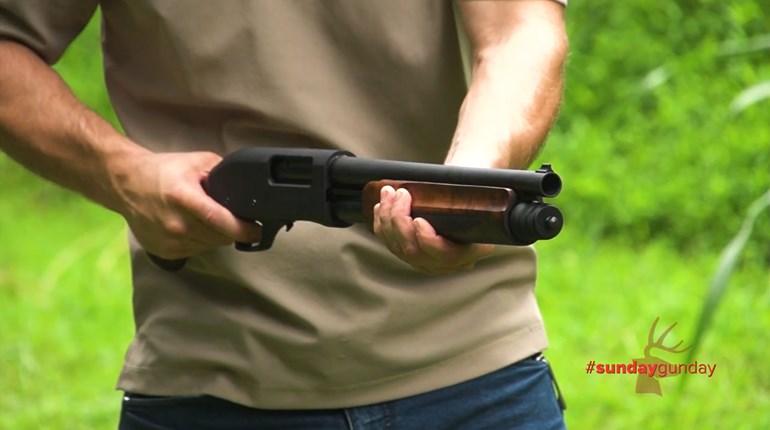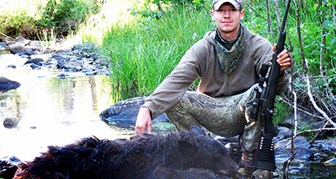
A mere century ago, elk were little more than a myth in New Mexico. Today, thanks to the reintroduction and management efforts of the New Mexico Department of Game and Fish, thousands of these majestic creatures roam the state's mountains. The Valle Vidal Unit of the Carson National Forest is home to the largest elk herd in New Mexico.
Some time ago, the Department conducted a study on elk calves in the Valle Vidal. They found after a short time that out of the calves they radio-collared, almost all of them had fallen prey to a single predator: bears. Having been closed to regular bear hunting for almost a century, it's obvious that bears are in abundance here-maybe too much. That's why the Department decided to start annual bear hunts here-one in April and one in August-to bring the bear population down just enough so that the elk calf survival rate would have a chance to rise.
The Valle Vidal has long been one of my family's favorite summer getaways and, needless to say, we jumped at the chance to hunt bears there. I was fortunate enough to draw for the hunt in August.
A few months after the draw results, on the opening day of the season, we studied our maps in our tent by the light of an electric lantern. We decided to drive down to a locked gate that blocked off an abandoned jeep road from motor travel. We'd been in this area before and had always thought it looked "beary." The abandoned road followed a little creek down the bottom of a brushy, high-country canyon.
The faint, early-morning light found us a short time later walking past the locked gate and down the abandoned road. It looked as though it was going to be a beautiful summer day in the mountains. The sky was mostly clear, and the temperature lingered around the 50-degree mark. We began a process of walking and then stopping every once in a while to do a few predator calls.
After a couple miles, the road led into a jungle of willow brush, cottonwood trees and a few spruces and firs. After passing a pile of brush on our right, I caught movement out of the corner of my eye. A mere fifteen paces away, a bear, black as night, peeked over the top of the creek bed facing me head-on. Instinctively, I racked my rifle and jerked the buttstock to my shoulder.
"Canyon, shoot him!" my dad whispered from behind me.
The roar of my rifle reverberated through the canyon as the bear jumped back down into the creek bed, disappearing from view. I quickly chambered a fresh round. The bear was hit, but apparently not well enough to be down. A split second later, a dark form bolted diagonally through the brush up the opposite side of the creek bed. Jerking up my rifle again, I caught my crosshairs on the moving black blob. Following the second ear-ringing blast, the black form dropped away from view. Grass rustled on the opposite bank, and then the silence of the mountains returned.
Racking my rifle again, I quickly crossed the creek. Inside a veil of willows on the opposite bank, I found the bear lying in the grass. It was still breathing, but wouldn't be for much longer. After some investigation, I found that my first bullet had caught the bear's right shoulder at an angle, thus missing its vital organs. My second bullet had struck the rear of the left side of the bear's ribcage at a quartering-away angle, snaking up into the bear's lungs and putting it on the ground. The bear was small-50 feet long and probably about 150 pounds-but did it really matter? I'd just killed a bear!
After a quick photo shoot, my dad and I dressed the bear and then tried to improvise a way to pack it back to the truck. We eventually found an 8-foot-long branch and draped the carcass over it. With each of us putting one end of the branch over our shoulders, we were able to pack the bear back to the truck in one trip.
A few months later, I once again found myself en route to the Valle Vidal. The fast-approaching winter had turned the formerly mild, green, wildflower-blanketed mountains cold, brown and snow-patched. This time, the whole family was coming along, and my brother and I would be after cow elk at about 8,000 feet. We did some scouting that evening, only to sight no elk, but we had high hopes that the next morning would be different.
Several hours later, I found myself sitting on my sleeping bag eating a bowl of cereal. A propane lantern hung from the ceiling of our tent, emanating its familiar hiss and flooding the interior with light. It was the opening morning of the elk hunt. After finishing breakfast and gathering our gear, we were off.
Fifteen minutes later, the first inklings of pre-dawn light found me moving south across a large meadow. A stiff, bitter wind stung my face. After walking for a while and seeing nothing more than a couple coyotes, I spotted two orange vests up ahead. Not wanting to interfere with those guys' hunt, I turned south.
Suddenly, I glimpsed movement about a quarter mile ahead-a seemingly endless line of elk crossing the canyon at a stiff pace, disappearing into the trees on the south side. Something had spooked them; maybe those hunters I'd seen earlier, or maybe coyotes or a mountain lion. I crouched down, and as soon as the last elk entered the trees, I sprang to my feet, running across the canyon and up the opposite ridge. After climbing through a slot in a rock rim, I started walking along the top in hopes of intercepting the elk somewhere down the ridge.
As I picked my way through a tangle of dead, fallen trees and oak brush, I happened to glance up. Down there in the trees, in a shallow, 200-yard-wide saddle, were the elk. There had to be at least 50 of them. I quickly crouched down. Fortunately, none of them had spotted me yet. They were feeding while slowly moving over a little finger ridge. I decided to wait until they all got over the ridge and out of sight before I made my move.
As soon as they all moved over the finger ridge, I got up and walked across the saddle. Then I started crawling on my hands and knees. As soon as I glimpsed tan bodies over the crest of the little ridge, I took off my pack and laid it out in front of me, at the base of a tree trunk. Resting my dad's Ruger M77 on top of it, I was able to hold the crosshairs steady and had a good view of the elk, which were slowly feeding through the timber 150-200 yards away. Having already chambered a round, I took the safety off and waited for a good, clear shot to present itself.
A minute or so later, I glimpsed movement out of the corner of my eye and heard footfalls and cracking branches. Behind and to my left 60 or 70 yards and slightly below me was a group of 10 or 12 elk; mostly cows, though I remember seeing a raghorn bull or two in the mix. If they had seen me already, they hadn't figured out what I was yet, likely because I was lying flat of the ground motionless...but as close as I was to them, it was probably a matter of seconds before they busted me. The leading cow spotted me as I lifted the rifle off my pack, swung it around, and rested my elbows on the ground, but it was too late for her to react.
The little group wheeled around and ran 20 yards back the way they'd come before stopping again, obviously confused about the big boom they'd just heard. I lost track of the cow I'd shot at as I hastily chambered a fresh round. Shouldering the rifle again, I scrutinized the group. I couldn't have missed from that range, but none of the elk looked like they were hit. Ready to shoot again, I could do nothing but wait for something to happen.
Several seconds later, I was relieved to see one of the cows rear up on its hind legs and violently crash to the ground. I thanked God for another successful hunt, jumped up, and ran down to make sure she didn't go anywhere.
The cow eventually lay to rest for the last time with her left side facing up, on which was a small, clean bullet exit hole right behind the shoulder. This meant my shot on the opposite side had been spot-on and my dad's 7mm Nosler Partition handload had effortlessly zipped through the elk.
Over 2 miles of rough mountain terrain stood between me and camp, and I was alone. I dug my radio out of my pack and called, hoping to pick up my dad, who was helping my brother and by now probably about as far from camp as I was. For reasons unknown, the signal was bad, but we still managed to connect. I told him my situation, and he and my brother went to pick up our pack frames and other gear necessary for packing the elk out. The elk would get eaten by a predator if I left it unattended, so I couldn't leave. So began a several hours' wait that would feel like an eternity.
The sun disappeared and it began to snow. I briefly removed my hands from the comfort of my jacket pockets to pick up the rifle and chamber a round. The rifle bucked in my hands as I fired a shot into the air, its deep, reverberating boom breaking through the silence of the storm and the cold, dreary mountains.
Eventually, my dad and I had turned the elk into four quarters, backstraps, a gutpile and a bare ribcage. After packing out the first load of meat, we hiked back in for the second load, this time with the help of my mom and uncle. Much to my back's delight, I finally found myself dropping the last quarter into the bed of the truck.
I remember walking along a ridge overlooking an enormous, wide-open valley. I was doing a big, wide loop in hopes of pushing elk back toward my dad and brother. Windswept snow and stunted pine trees surrounded me, and the white, frozen mass of 13,161-foot Wheeler Peak dominated the southern horizon. The bitterly cold wind stung my face, my shoulders ached under my pack, and a spot on the left side of my hip hurt from having my revolver tightly strapped to it for so long while hiking. Some might call me a masochist, but moments like these give me an unparalleled sense of freedom, and I believe all other hunters can relate to this. There's something about doing what you love in a wilderness that you've come to love that exhilarates the soul like nothing else.
I have been so lavishly blessed in my life. I live in a place where abundant, high-quality hunting is close to home. I belong to an outdoor-loving family, and my family situation enables me to be homeschooled so I can spend so much time pursuing my passion for hunting. All of these are gifts from God. He alone gives me the determination and discipline to hone my shooting skills and push myself to my limits and beyond. I would have no purpose; no reason for living without Him, and the least I can do in return is use the gifts He's given me for His glory.













